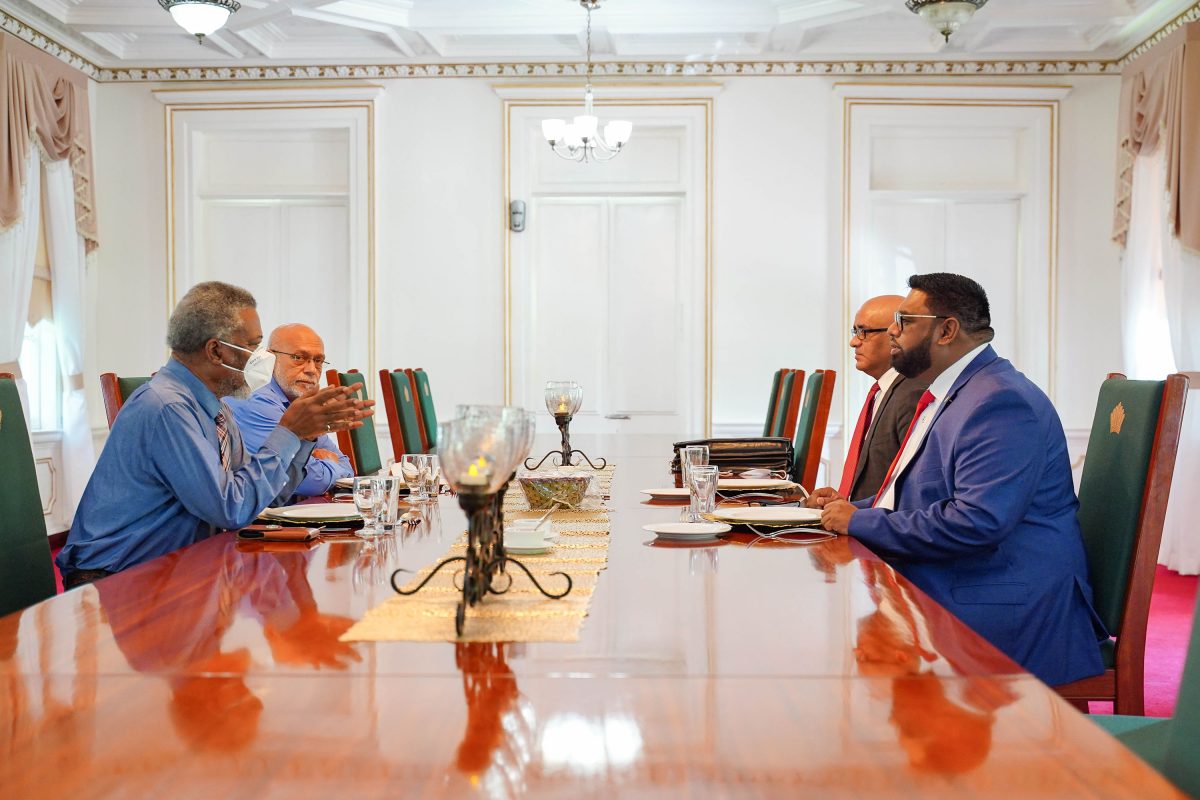President Irfaan Ali and three former PPP/C Presidents yesterday agreed that constitutional and electoral reforms should be people driven.
The former leaders of Guyana: Samuel Hinds, Donald Ramotar and Bharrat Jagdeo and Ali met yesterday for an initial forum at State House.
Former President David Granger had been invited but he declined citing the lack of an agenda and a clear purpose for the meeting.
“Different ideas on Constitutional Reform; not only ideas but how the former presidents saw the issues of Constitutional Reform, how it should be undertaken, were discussed”, Ali said, according to a release from the Office of the President
He said that what came out is a consensus that the process should be people driven and not a “backroom” type of procedure.
“People must play an integral role in the reform.”
Ali added that electoral reform was another subject area that was discussed and placed on the agenda. Specifically ideas on how to strengthen the electoral system, have external support in our legislation, stronger penalties as well as a clearer definition in terms of the electoral system.
The release said that in September, President Ali reiterated his position that consultation and inclusivity are vital to Electoral and Constitutional Reform.
“You will not see a President who will say; this is what we are going to do. Of course, I have my ideas on what should be done, but the final product has to come through a consultative mechanism and machinery that involves the citizens of the country,” President Ali had stated.
The release yesterday did not state what format the people-driven reforms would take and how long the process will last. There is public skepticism that sweeping constitutional reforms will be undertaken by this government. Previous administrations have promised electoral and constitutional reform but have failed to deliver – the former APNU+AFC administration being a prime example.
The release said that also high on the agenda was the issue of national unity and the process of achieving it.
On the absence of former President Granger, the Head of State expressed the hope that Granger would understand the necessity in attending the meeting and being part of the discussions.
He said that the former President would again be invited when the group meets in the first quarter of next year.
“It is a national effort in ensuring that we harness the ideas of our former Presidents who are still available to us.”
Ali said one of the key issues discussed during the engagement was the achievement of national unity and the strengthening of mechanisms to support it.
Key among the mechanisms was the existing Racial Hostility Act.
“The whole issue of national unity, how do we achieve national unity were discussed. What are some of the targeted things we can do? How do we look for example at the Racial Hostility Act to make it stronger with greater penalties for those who are bent on creating mischief and dividing our people?”, he said.
President Ali said that similar engagements will be held quarterly.






